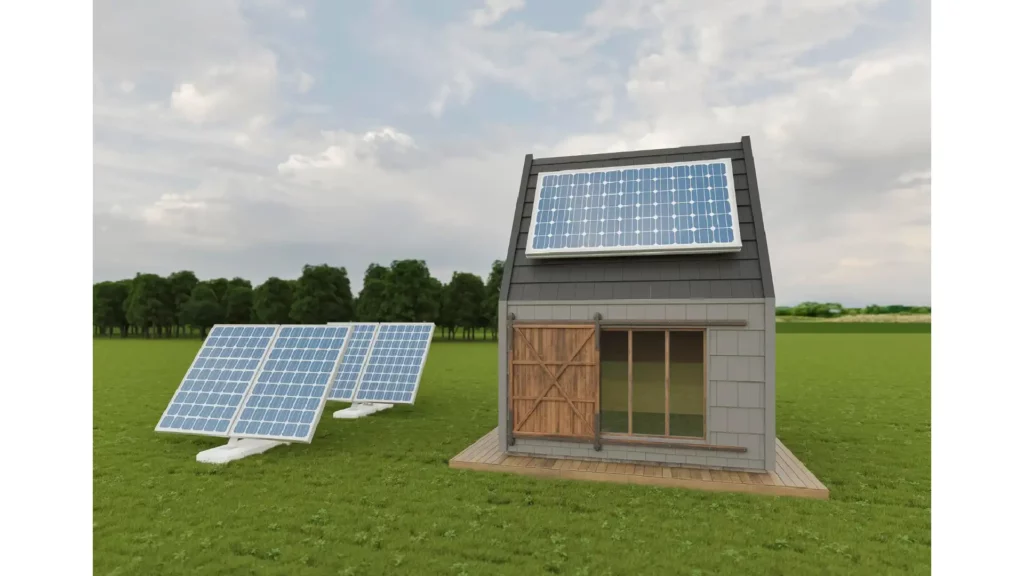Florida, known for its abundant sunshine, offers a unique opportunity for homeowners to harness solar energy.
One of the most accessible ways to take advantage of this clean energy source is by leasing solar panels.
In this guide, we will dive deep into everything you need to know about leasing solar panels in Florida, ensuring you have all the information at your fingertips to make an informed decision.
What is Solar Panel Leasing?
Solar panel leasing allows homeowners to have solar panels installed without upfront costs, making renewable energy more accessible.
Homeowners pay a fixed monthly fee for using the solar energy generated, which is typically lower than their previous electricity bill.
This arrangement eases the transition to renewable energy and can lead to immediate cost savings, as the leasing company also handles maintenance and repairs.
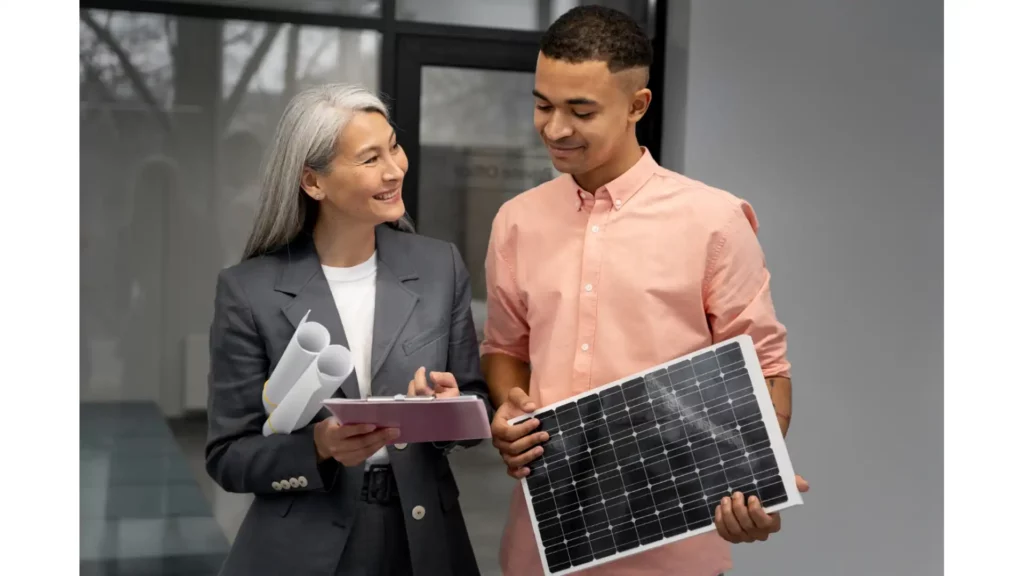
Benefits of Leasing Solar Panels in Florida
The decision to lease solar panels in Florida brings with it a host of advantageous benefits, making it an attractive option for many homeowners. Here's a deeper dive into the Benefits of solar energy:
- No Upfront Costs: One of the main advantages is that it requires no or very low initial investment, making solar power accessible to a wider range of homeowners.
- Reduced Energy Bills: Leasing solar panels in Florida can lead to significant savings on your electricity bills, as you'll be generating your energy from the sun.
- Maintenance and Repairs: Typically, the leasing company is responsible for the maintenance and repair of the solar panel system, reducing the burden on the homeowner.
- Predictable Energy Costs: By leasing solar panels in Florida, homeowners can enjoy predictable energy costs thanks to fixed monthly payments. This makes it easier to manage household budgets, as the cost of electricity will not fluctuate as much with changes in utility rates.
- Increased Property Value: While the solar panel system is leased and not owned, having a solar energy system can still make a property more attractive to potential buyers who value sustainability and lower operating costs, potentially increasing its market value.
- Access to the Latest Technology: Leasing agreements often include options to upgrade to newer solar technology once available. This means homeowners can always have access to more efficient solar panels without additional large investments.
- Reduced Carbon Footprint: By using renewable solar energy, homeowners contribute to reducing greenhouse gas emissions, making a positive impact on the environment. This aligns with the growing trend towards sustainability and eco-friendly living.
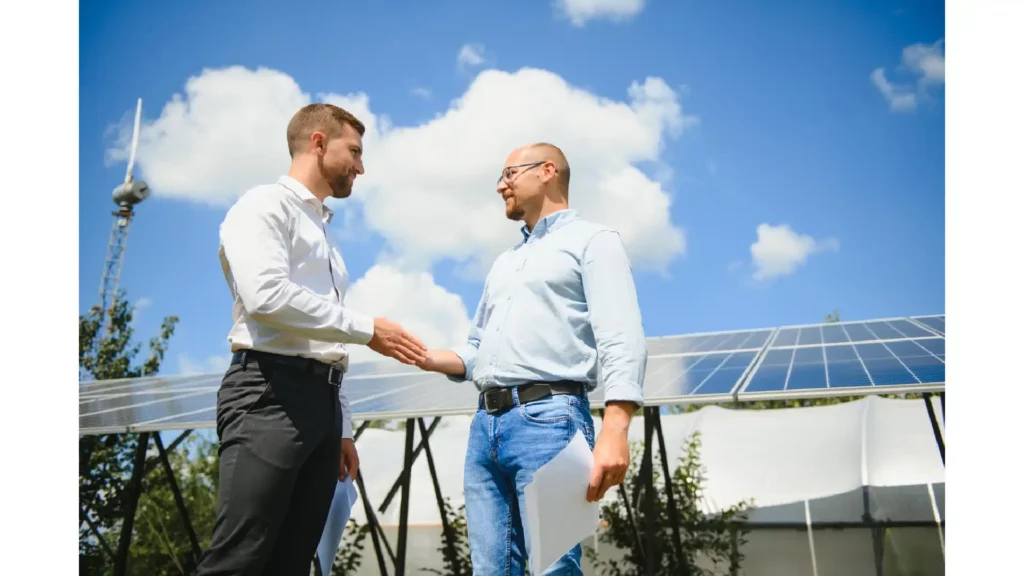
How Does Solar Panel Leasing Work in Florida?
When leasing solar panels in Florida, the process typically involves several key steps:
- Consultation and Agreement: A solar provider assesses your home's suitability for solar energy and provides a leasing agreement. This agreement outlines the terms, including the monthly lease payment and contract duration.
- Installation: The solar company installs the solar panel system on your property at no initial cost to you.
- Monthly Payments: You pay a fixed monthly lease payment to the solar company for the duration of the agreement.
- Energy Production: The solar panels generate electricity for your home use, potentially lowering your monthly electricity bills.
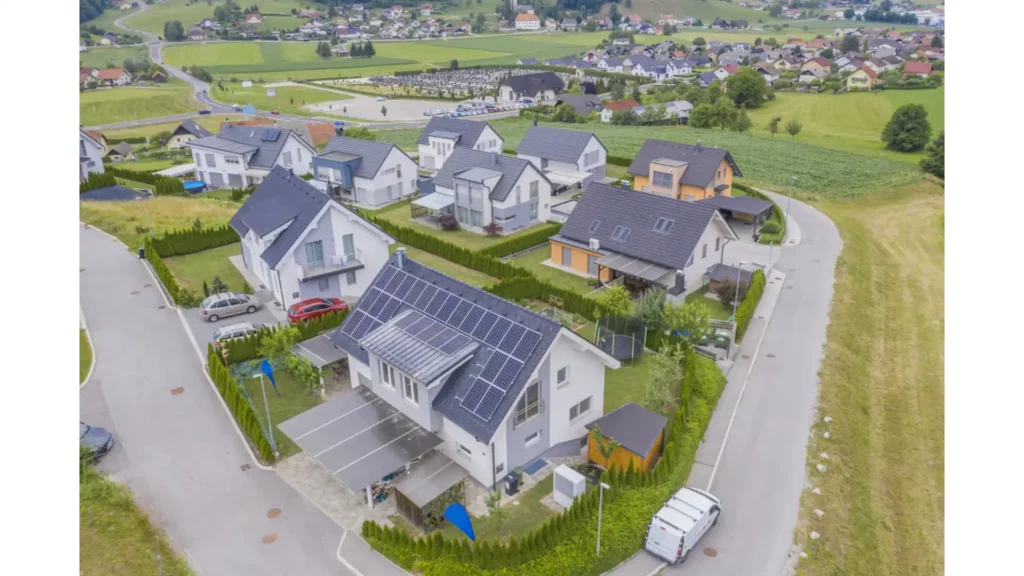
Choosing the Right Solar Leasing Company
Choosing the right solar leasing company in Florida is crucial for homeowners looking to switch to solar energy.
This decision can greatly affect the financial gains and overall satisfaction with your solar system. Consider these factors when selecting a provider to match your needs and expectations.
- Company's Reputation and Experience
Research the company's reputation and experience in the solar industry, focusing on customer reviews, testimonials, and case studies. A reputable and experienced company in leasing solar panels in Florida will likely offer reliable service and support during the lease.
- Terms of the Lease Agreement
Review lease terms: lease length, monthly payments, escalator clauses, end-of-lease options. Look for buyout or technology upgrade. Confirm terms align with energy needs and financial goals.
- Maintenance and Warranty Coverage
Ensure you know what maintenance, repairs, and warranty are included in the leasing agreement for solar panels. A good company will cover everything from inverter replacements to system monitoring at no extra cost to you.
- Customer Support and Service
Evaluate the quality of the company's customer service. The best solar leasing companies provide responsive and helpful support, offering clear channels for communication and timely assistance when needed. This is crucial for addressing any concerns or problems that may arise during the lease period.
- Certifications and Licenses
Make sure the solar leasing company in Florida has certifications like NABCEP and proper licenses to meet state standards for quality and safety.
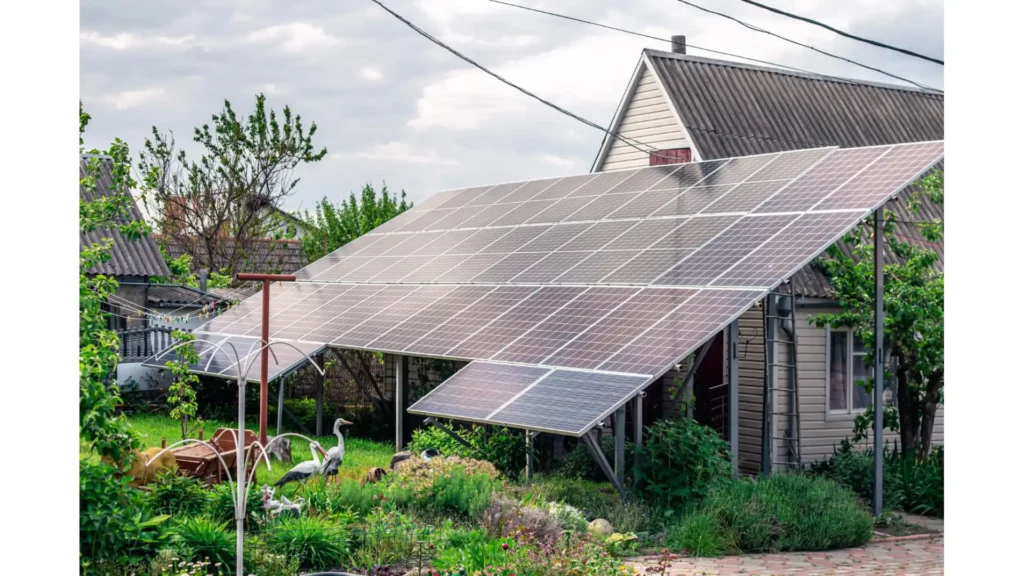
Financial Considerations for Leasing Solar Panels in Florida
Leasing solar panels in Florida can be financially advantageous, but it's important to understand the details:
- Lease Payments: These are typically fixed, making it easier to budget for your electricity costs.
- Savings on Electricity Bills: While monthly lease payments are a factor, many homeowners find that the reduction in their electricity bills can offset these costs.
- Tax Incentives and Rebates: Although direct tax incentives may not apply to leased systems in the same way they do to purchased systems, some benefits may still be available.
- Escalation Clauses: Some leasing agreements include an escalation clause that can increase monthly payments over time. It's important to understand how these clauses work and calculate their impact over the lease term.
- Transferability of Lease: If you plan to sell your home, the ability to transfer the lease to the new homeowner can be a significant advantage. Ensure you understand the process and any conditions that apply.
- End-of-Lease Options: At the end of the lease term, homeowners typically have the option to renew the lease, purchase the system at fair market value, or have the system removed. Understanding these options can help you plan for the future.
- Potential Impact on Home Insurance: Adding solar panels to your home may affect your home insurance premiums. It's advisable to check with your insurance provider to understand any changes to your policy or premiums.

Leasing Solar Panels in Florida Environmental Impact and Sustainability
Leasing solar panels in Florida significantly advances environmental sustainability and climate change mitigation, offering a multifaceted approach to reducing our ecological footprint. Below is an expanded overview of the environmental benefits this choice brings:
- Harnessing Renewable Energy: Solar energy is a limitless resource, allowing homeowners to decrease dependence on finite fossil fuels, which are detrimental to the environment.
- Reduction in Greenhouse Gas Emissions: Solar panels generate electricity without producing carbon dioxide or other greenhouse gases, directly cutting emissions that contribute to global warming.
- Conservation of Water Resources: Unlike conventional power generation, solar photovoltaic systems do not require water, thus conserving vital water supplies and alleviating pressure on local resources.
- Reduction in Air and Water Pollution: By avoiding the pollutants released by burning fossil fuels, solar energy contributes to cleaner air and water, benefiting public health and ecosystems.
- Encouragement of Green Technology Advancement: The increasing demand for solar energy promotes research and development in solar technologies, leading to more efficient and affordable solar solutions.
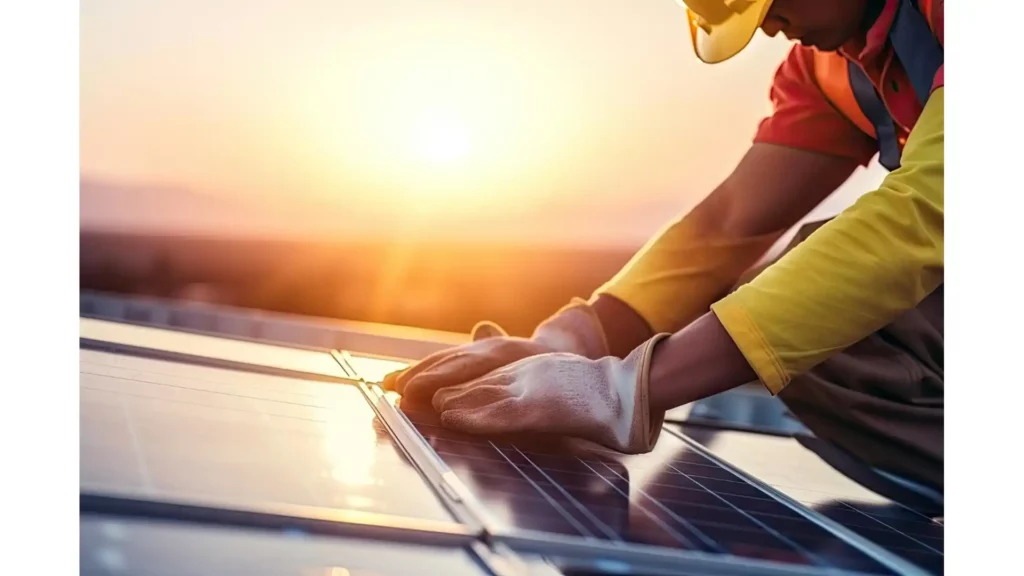
FAQs: Leasing Solar Panels in Florida
What are the main differences between leasing and buying solar panels in Florida?
Leasing solar panels means you pay a monthly fee to use the solar energy system installed on your property without owning the equipment. Buying solar panels involves an upfront cost, but you own the system outright and can benefit from tax credits and increased home value. Leasing offers a low upfront cost and maintenance coverage, while buying provides long-term savings and potential profits from excess energy production.
Can I still benefit from solar incentives if I lease solar panels in Florida?
While homeowners who buy solar systems can directly benefit from federal tax credits and other incentives, those who lease may not be eligible for these personal tax benefits. However, leasing companies often pass savings to customers in the form of lower monthly payments, as they can take advantage of these incentives themselves.
How long is a typical solar panel lease agreement in Florida?
Solar panel lease agreements in Florida typically range from 15 to 25 years. The specific term depends on the provider and the preferences of the homeowner. It's important to understand the terms of your agreement, including what happens at the end of the lease.
What happens at the end of a solar panel lease in Florida?
At the end of a solar panel lease, you usually have the option to renew the lease, purchase the system at a predetermined price, or have the system removed by the leasing company. Some companies may offer to extend the lease under new terms or upgrade the system.
Can I sell my home if I have a leased solar panel in Florida system?
Yes, you can sell your home with a leased solar panel system. The lease can be transferred to the new homeowner, subject to the leasing company's approval and the buyer's agreement to take over the lease terms. It's important to inform potential buyers about the lease agreement and any obligations they would assume.
Does leasing solar panels increase home insurance premiums in Florida?
Leasing solar panels may affect your home insurance premiums, but the impact varies depending on your insurance provider and policy. It's advisable to contact your insurance company to understand how leasing solar panels might change your coverage or premiums.
Are there any hidden costs when lease solar panels florida?
While lease solar panels florida typically includes maintenance and repairs, it's important to read the lease agreement carefully for any additional fees or costs, such as escalator clauses that increase the monthly payment over time or fees for system removal at the end of the lease.
Can I upgrade my solar panel system during the lease period?
This depends on your leasing agreement. Some solar leasing companies in Florida offer the option to upgrade to a newer system during the lease term, which may be beneficial as technology advances. Check your contract for terms regarding upgrades.
How does net metering work with leased solar panels?
Net metering allows you to earn credits for excess energy your solar panels produce and return to the grid. In Florida, homeowners with leased solar panels can still benefit from net metering, though the specifics may depend on the utility company and the terms of the lease agreement.
Is it possible to cancel a solar panel lease early in Florida?
Canceling a solar panel lease early is possible, but it may come with significant fees or penalties. The specific terms for early termination should be outlined in your lease agreement, including any costs associated with canceling the lease before the end of the term.
Leasing Solar Panels in Florida Conclusion
Leasing solar panels in Florida offers a promising opportunity for homeowners to harness the state's abundant sunshine for clean energy production.
With financial and environmental benefits, it's an option worth considering for those looking to transition to renewable energy without the high upfront costs associated with purchasing a system outright.
By understanding the process, financial considerations, and regulatory landscape, homeowners can make an informed decision that aligns with their energy needs and financial goals.

